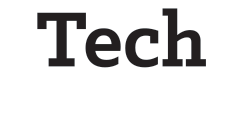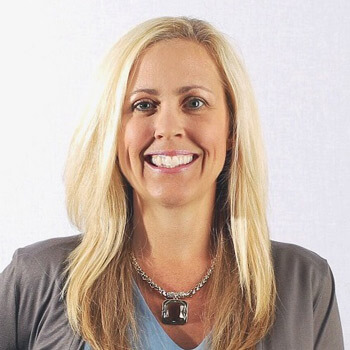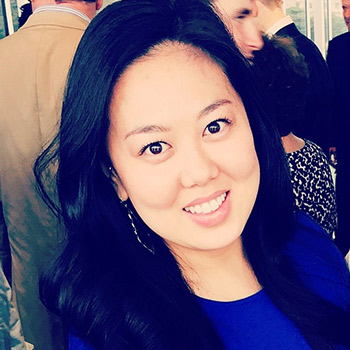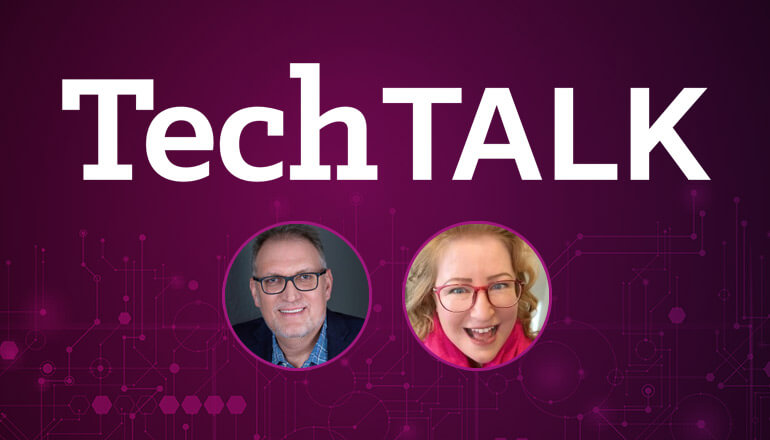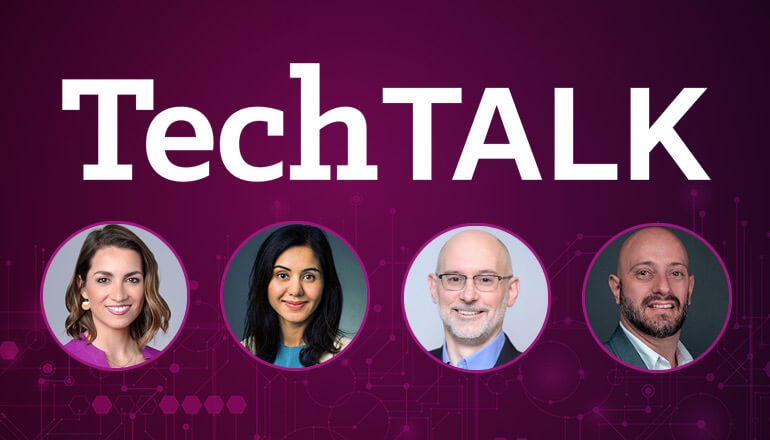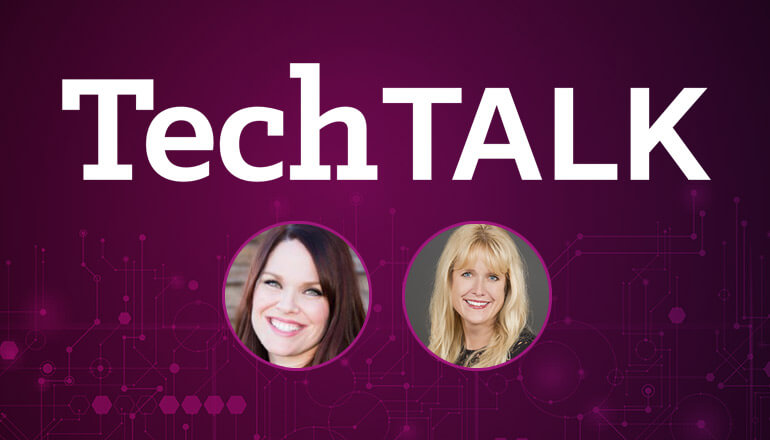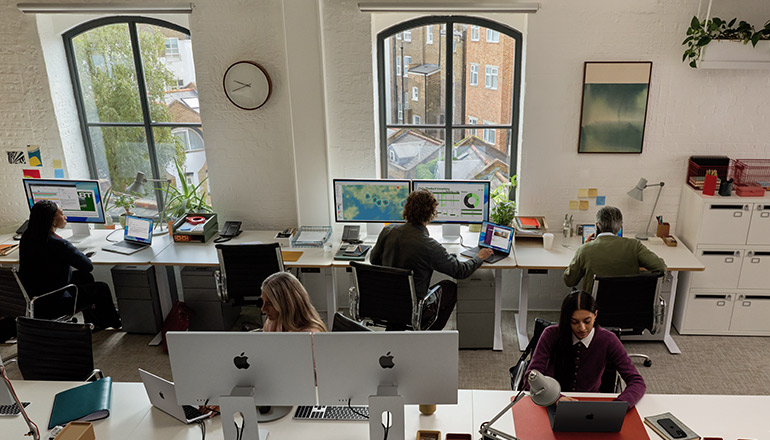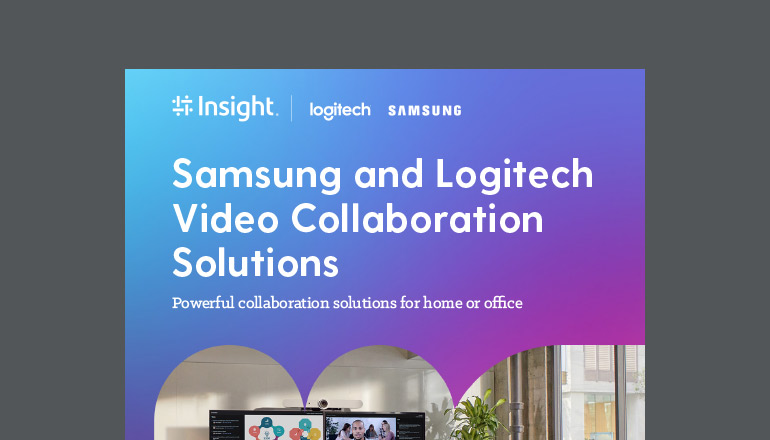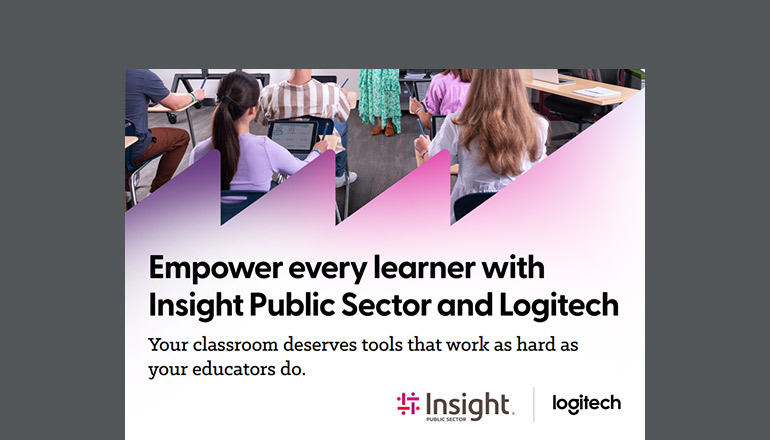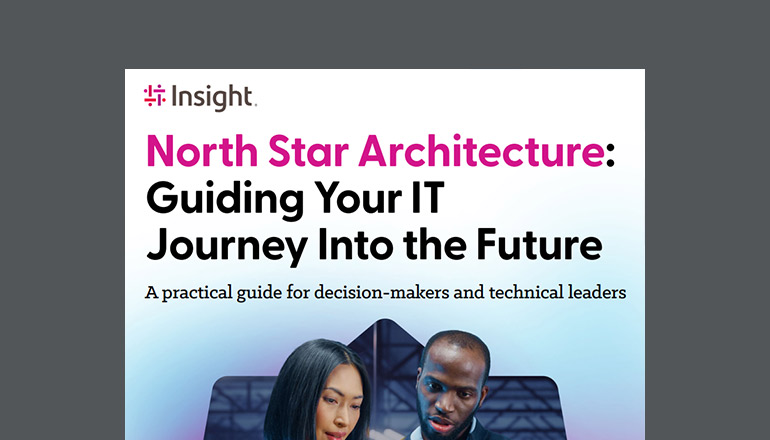Audio transcript:
Going Remote, a Year in Review: The Employee Perspective
HEATHER
Hi, I'm Heather Wagner, Content Marketing Manager for Insight, Cloud and Data Center Transformation. And I'm going to welcome back Jenny Rhyu, Global Account Executive, from the Bay Area, and Ryan McWilliams, Paid Media Strategist, for our digital innovation team.
In August 2020 the three of us met up, we discussed this experience of going remote as an organization, as individuals. So, to kick things off, in the office, typically we have weekly lunches with some of our teammates. We do the quick coffee runs, or we get together by the water cooler, right? Have some chats to discuss things. How are you connecting with your teammates now?
JENNY
Yeah, I think right now, obviously everything is still virtual. There's not a ton that can be done virtually. I know I was telling one of my teammates the other day I have probably around 15 cocktail shakers now, given all the partner events and team events, and everyone just sending out little sets to do team building exercises. So, I think we're limited in things that we can do from a virtual perspective, but nevertheless I always appreciate the effort, and we got to be intentional about it.
RYAN
Yeah, and I think for me, something that I mentioned last time was the efficiency of early meetings, right? When we went remote, a 30-minute meeting that was finished in 20 minutes, we would jump off the call at 20 minutes and then we'd continue on with our day. But now that we're a year into this, I'm finding that a lot of teams are kind of hanging on after the call, and once all the agenda items are through, we're kind of just hanging out and then chatting and catching up kind of, a lot of us I'm sure are missing that in-person interaction and just chatting with some of your coworkers.
HEATHER
Yeah, exactly. It's that conversation that you would have heard walking out of the meeting room, the conference room back to your respected places in the building. So, definitely I'm seeing that as well, spending that extra time just to get caught up on things.
Jenny, this next question is going to be directed more to you since you are client facing. So, how has your engagements with the clients changed and what are you seeing, what have you seen in the shift and their priorities?
JENNY
Yeah, so I think the last time we met, a lot of the conversations were around how to return to work safely. Obviously, as I had said before, remote work was always part of everybody's strategy, but we spent a lot of time talking about our digital innovation practice, to talk about just how we bring employees back to work. That has changed into a conversation about just workplace transformation in general. The discussions are how do we support our end users at home? How do we make sure that they have great connection? How do we make sure that we're still supporting them well? And how do we make sure that we have an agile enough infrastructure for this new, dispersed workforce environment?
So, I think that has shifted quite a bit, just from a strategy perspective.
HEATHER
There have been some more work from home environmental issues. So, Ryan, what are some things that have impacted you a little bit?
RYAN
Yeah, I said this and I noticed it right when we went remote. The personal ISPs are not handled, or they had not been set up to handle everyone working from home, and everyone being on the internet 20 hours a day. So, that's definitely something that I miss, having a truly stable internet connection at the office, at Insight. Not having to worry about outages during the day, but there something that's been a continued pain point for me, specifically, is waking up on a random Tuesday morning and not having a stable internet connection or not having internet connection at all, and getting the text from my ISP saying, "We're under maintenance, and we don't know when it'll be back." So, that's something that's I've struggled with for a year now.
HEATHER
And to that point, I had worked from home for about a year and a half before the pandemic started. So, if there was that issue, I could just go over to my local coffee shop and access their internet while my internet provider was fixing the situation. But with the pandemic, especially in the initial several months, that wasn't an option. Now as things you're opening up more, that is, but there is still that strain on the internet for sure. So, as far as collaborating, because I know in our last talk, Jenny talked about collaboration tools possibly evolving and stuff.
So, what are you seeing, Ryan, I'll go to you first. What are you seeing as far as adoption of collaboration tools?
RYAN
So, I think initially we saw a lot of these collaboration tools and then we called out a couple specific examples last time, but a lot of them were very quick to add new features, and add things that would allow us to connect rather quickly. But, it seems to have slowed down just a little bit from my perspective, adding new features, it kind of took the back seat with connectivity, and making sure that connections were stable, and making sure that everybody what they needed to collaborate. But as far as new features, that's something that we've seen slow down over the last couple months. And obviously as the workforce shifts to full-time remote that's something that I'm expecting to see continue the next year or so.
HEATHER
Yeah, that's a great point. Jenny, are you seeing similar things or?
JENNY
Yeah, I think that what I'm seeing right now is, I think primary, before the pandemic, there was already great adoption of collaboration tools. Right? I think that was something that everyone was leveraging well, but I would agree. I think that at first there was a lot of increase in functionality and a lot of that has slowed down. I think at the beginning there was even focus on how to not just make the experience better, but make it a little fun. They were adding more backgrounds and doing things like that. But I think they hit pause a little bit on how to truly make it scalable, because this is semi-permanent. So, I think that's kind of what I've been seeing as well.
HEATHER
Yeah, definitely. And I mean, I think it's a lot, they had to shift to let's fix some of these issues to make sure that people cancel access to tools as opposed to creating new options and new features. So, definitely a little bit of a shift there, so hopefully, that'll start to go back, and we can get some new cool things added into some of these collaboration tools.
Last time we met, we discussed the future of work, right? Where did we think it was going now a year later. Are you seeing the changes of work? Especially Jenny, working with clients and stuff, what are you seeing as far as what that possibility of the future workplace might look like?
JENNY
I think I had said this before when we chatted last year about, and I talked about it again today, about remote work, having already taken a path forward prior to the pandemic. But one of the things that I'm seeing, maybe not specifically with my clients but in the Bay Area in general, are even organizations that never planned to go remote, and that was not part of their strategy and maybe not part of their vision, have somewhat been forced to include that into their strategy. I think COVID has made organizations realize that this is something that their employees want. So, even if it's not something that they ever pictured, even if what they always wanted was an office campus culture, they need to be more flexible in order to improve the employee experience. So, I'm seeing kind of not just organizations wanting to adopt it as a strategy, but also organizations being forced to adopt it to ensure that they stay competitive in the market.
HEATHER
Yeah, great point. Ryan, what are your thoughts on that?
RYAN
Yeah, I think, Jenny, kind of hit the nail on the head, but just to expand a little bit, I think the future of employment when it comes to recruiting has definitely changed too. You no longer necessarily have to live in the city, or even the state where you're interviewing for, or where job opportunity is. So, it's something that it opens up a lot of possibilities, and it kind of allows businesses to really get the person that they want without having the restrictions of having to live close to the office anymore.
HEATHER
So, now that we're wrapping up here what is some advice you would give to our audience when it comes to that work-life balance?
RYAN
Yeah, I definitely think that it's worth getting up from your desk, something that I had definitely fall victim to is staying at my workstation pretty much for the entire day, kind of rolling out of bed, jumping in my chair, and then being in that chair for the entire day. I had my lunch at my desk and I just kind of fell into this habit of working basically the entire day, and not really taking any time for myself. So, now I've kind of made a point to block off 15 minutes on my calendar every day if I can, take my dog on a longer walk, have lunch outside, just step away from work for a couple of minutes, just to kind of focus on myself in making sure that I'm in the best place possible mentally and making sure that I'm totally prepared to handle whatever work has to throw at me.
HEATHER
Perfect. What about you Jenny?
JENNY
Yeah, for me I think a few things that I've learned… So, setting the time to actually call it a night instead of kind of staying there and trying to get more done, and actually shut your laptop down. I think that actually sounds pretty simple, but it's actually very effective.
I think the other thing that I've learned is just understanding that the world is not going to fall apart if you walk away from your laptop for just a second, very similar to what Ryan said. I think that's actually kind of across the board and many people experience that anxiety. And then the last thing is maybe re-evaluating how we use the word urgent. I think being at our desk, it has just caused us to I think maybe overuse that word and redefine the word. So, I think that's something that might be something we should consider going forward.
HEATHER
Definitely, I agree with that. So, great point. Again, thank you both for taking the time to talk through this, and maybe we'll be around for a third session, who knows? (giggling)
RYAN
Thanks Heather.
HEATHER
Thanks everybody.
JENNY
Thank you.
[Music]
